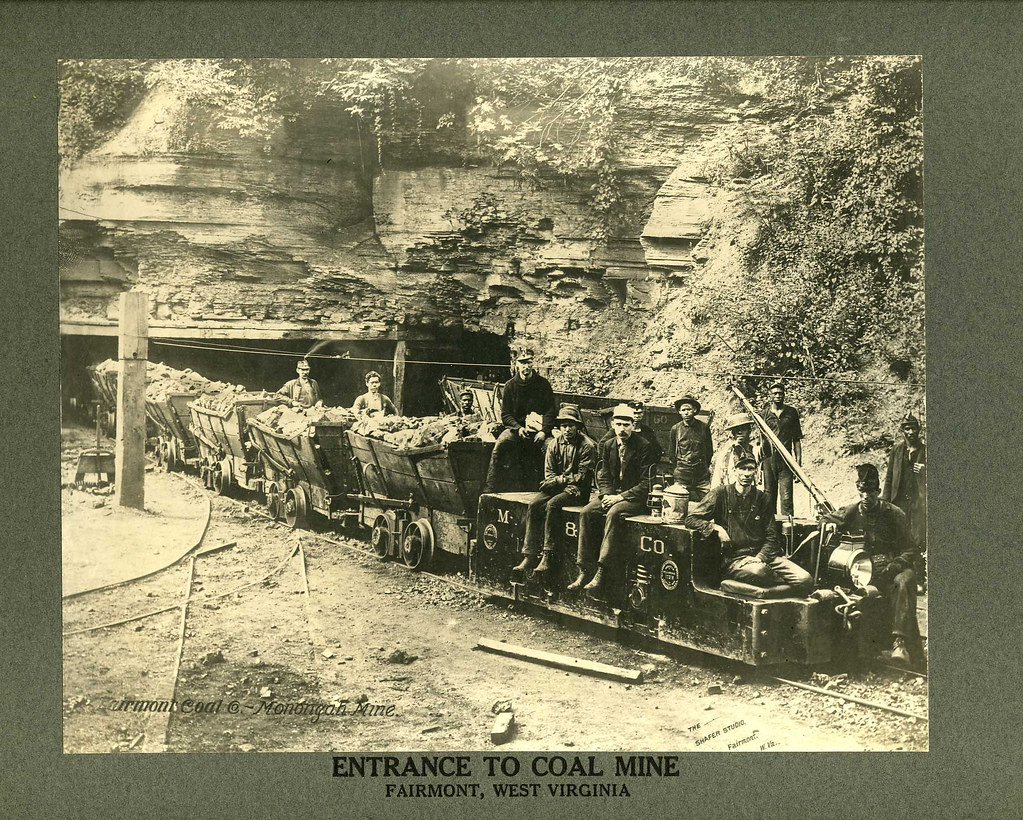
Coal is like America's first car — it's not much to look at, but it got us where we needed to go. It took awhile for us to warm up to it, but coal helped create some of America's best memories and achievements. Yet every first car eventually reaches a point when the cost of upkeep becomes greater than the cost of something new.
Likewise, coal is totaled.
A new report from the climate think tank Energy Innovation found the cost of maintaining an existing coal plant is greater than the cost of constructing a new wind or solar farm. But is the U.S. ready to let go?
Trouble in coal kingdom
West Virginia is the seat of power for the U.S. coal industry. Though the state of Wyoming produces more coal, West Virginia's culture is more coal-centric in its production and consumption.
Folks on every rung of West Virginia's social ladder have intimate connections to coal, from miners to plant operators to corporate CEOs. Though coal has steadily lost national support, and even lost the support of some West Virginia coal miners, the fossil fuel maintains a chokehold around the state's economy and culture.
Indeed, even West Virginia Sen. Joe Manchin, is essentially a modern day coal baron with the equivalent of an ultimate veto power on all national energy legislation. Manchin's unabashed conflicts of interests are, at least, transparent. As the owner of multiple private coal companies, the senator has a clear vested interest in prolonging the coal industry for as long as possible. Although Sen. Manchin may be the nation's de facto Coal King, his kingdom is in fast decline.

As the appeal of renewable energy grows, coal can't keep the lights on
While West Virginia houses some of the most stubborn of coal supporters, it also hosts the best arguments for transitioning away from coal and toward renewable energy. The state of 1.8 million people employs fewer coal miners each year, from over 23,000 in 2011 to 11,500 in 2021. This is a far cry from the state's purported "peak coal employment" in 1940, when 130,457 men worked the mines of the mountain state, accounting for about 7 percent of the total population. Nowadays, less than 1 percent of West Virginians are employed as coal miners.
The state may not rely on coal jobs for support anymore, but it overwhelmingly relies on coal for energy. As the rest of the U.S. began to transition away from coal, West Virginia doubled down on its cash crop. In the state most dependent on coal-fired energy, some residents pay more for their energy bill than their mortgage. Essentially, coal jobs no longer support the economy, and coal power doesn't support its residents.
Coal crusaders have long been able to fall back on economic arguments in favor of coal, emphasizing the sunk costs of existing coal mines and casting doubt on the potential gains of renewable energy. Left without a leg to stand on, industry leaders and coal-allied politicians now make their last-ditch final effort to thwart progress: desperate appeals to nostalgia in coal country.
Clinging to cultural coal-stalgia?
It could be argued that Americans are always resistant to change. When the government announced in 2020 its plan to phase out the penny — which costs two cents to manufacture, on top of its environmental harm — Americans formed the "Save the Penny" movement, which argued that the $72 million spent each year on manufacturing pennies is worth it because the penny is nostalgic and historic.
West Virginian leaders recognize the same sentimentality toward coal, and their pro-coal rhetoric has likewise shifted from economic arguments relying on statistics to emotional arguments relying on stories.
These are the death throes of the stubborn survivors of a bygone era; these are the exasperations of a candle salesman who has just seen a light bulb.
But coal stakeholders can delay, not prevent, the inevitable, and the winds of change have begun to blow even into the deepest coal mines in West Virginia. Renewable energy investments, like a developing solar grid built on old mine lands and plans for a new iron-air battery factory, have repositioned the Mountain State from trailer to trailblazer.
Image credit: Yaroslav Maltsev/Unsplash and Wikimedia Commons

Patrick is a freelance journalist who writes what the robots can't. Based in Syracuse, New York, Patrick seeks to uplift, inform, and inspire readers with stories centered on environmental activism, social justice, and arts and music. He enjoys collecting books and records, writing prose and poetry, and playing guitar.














